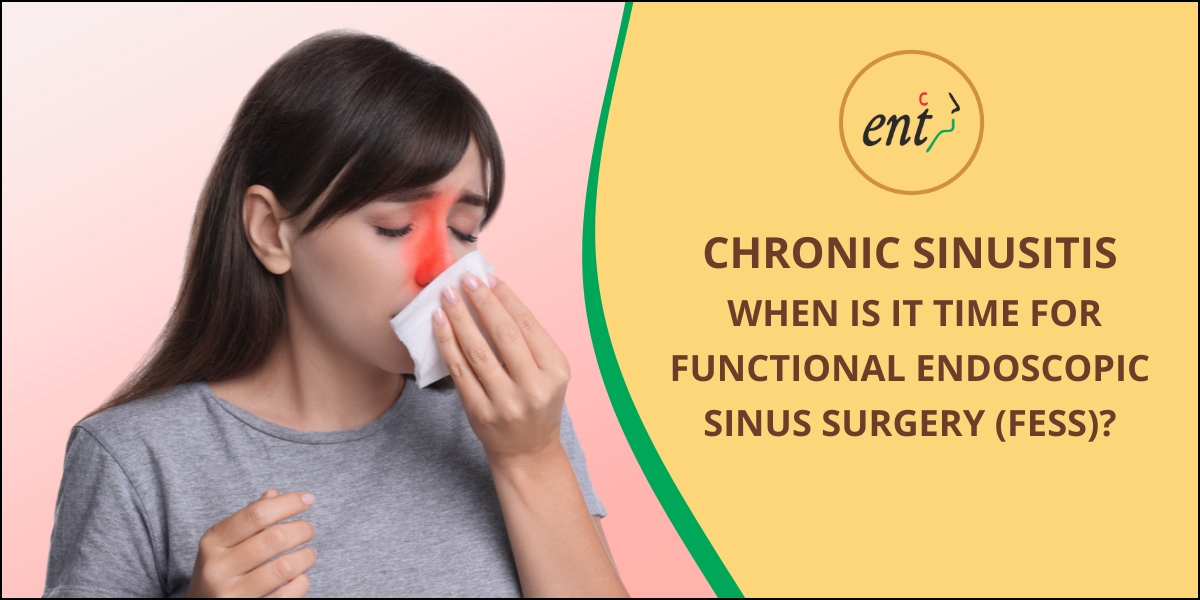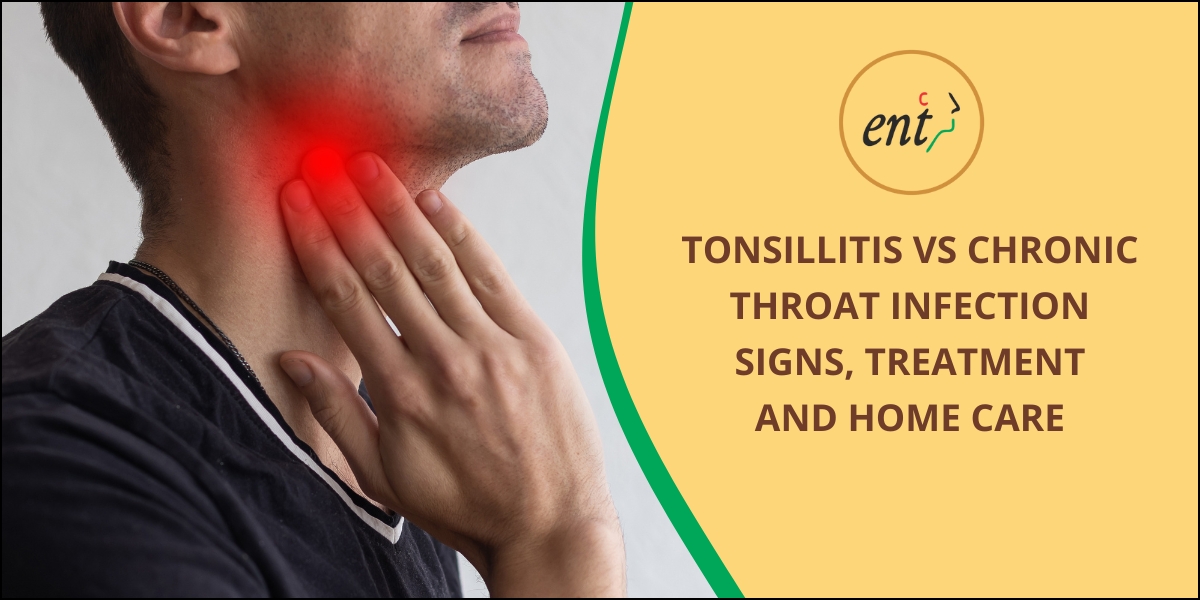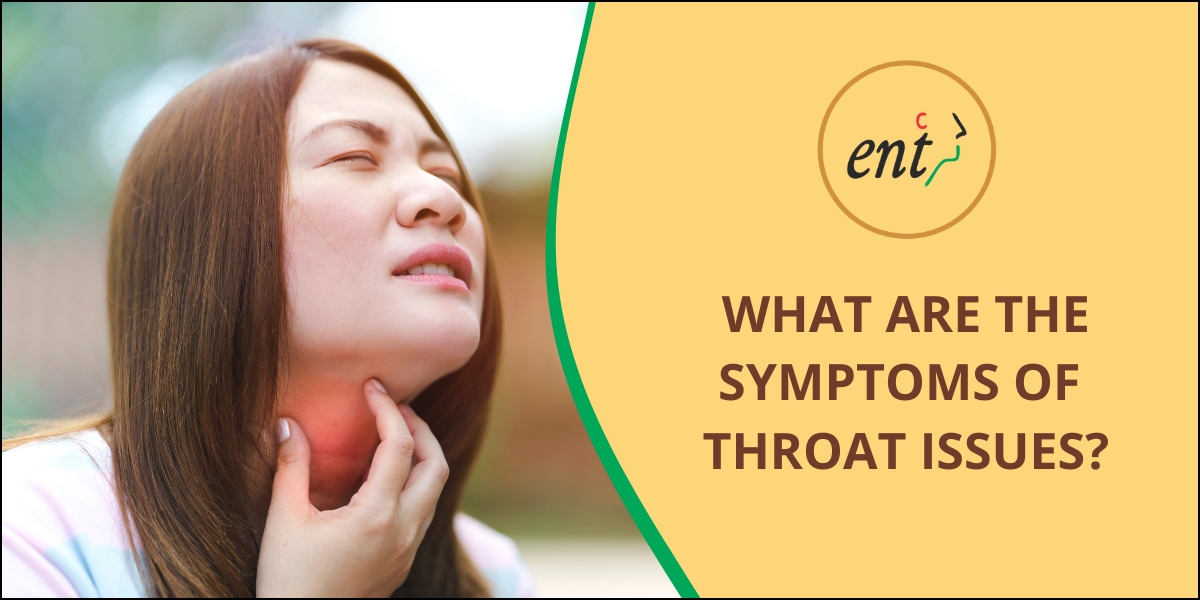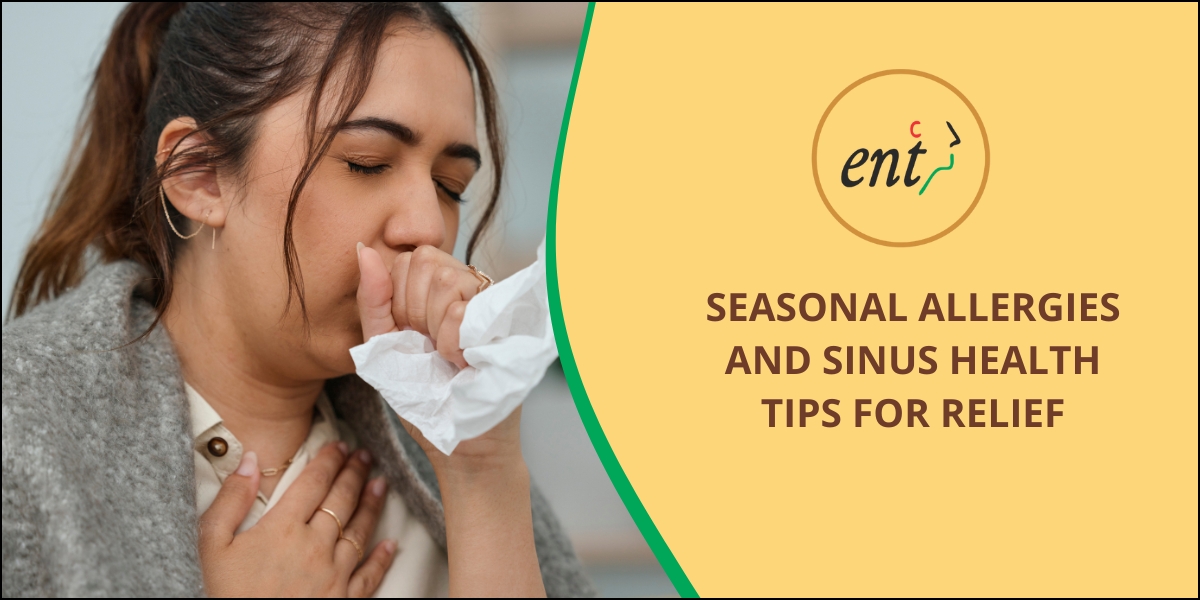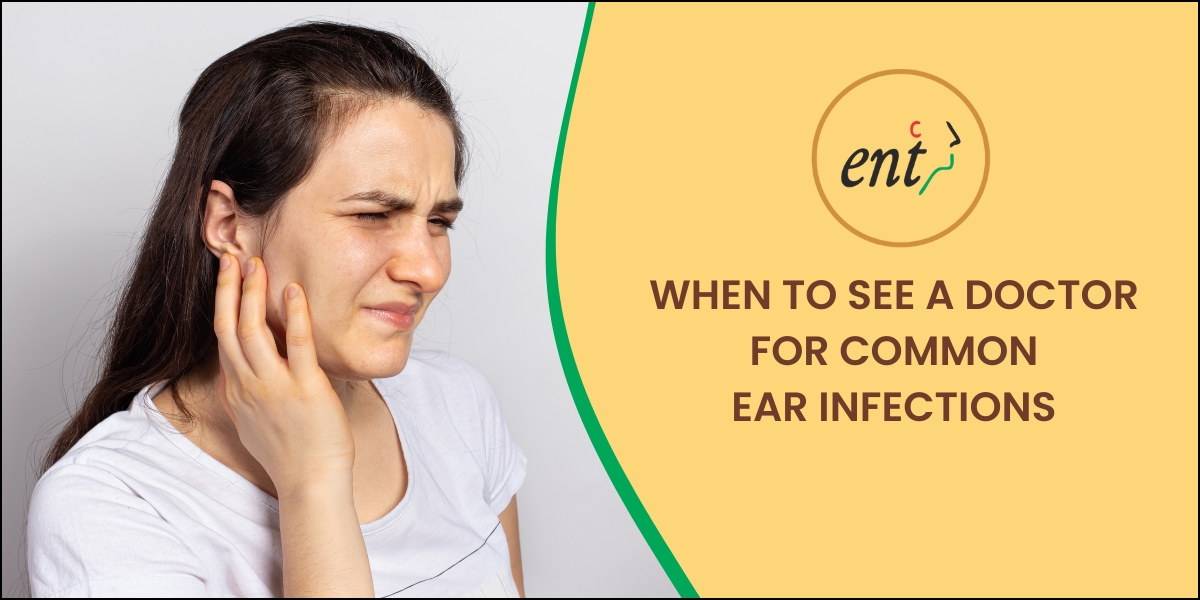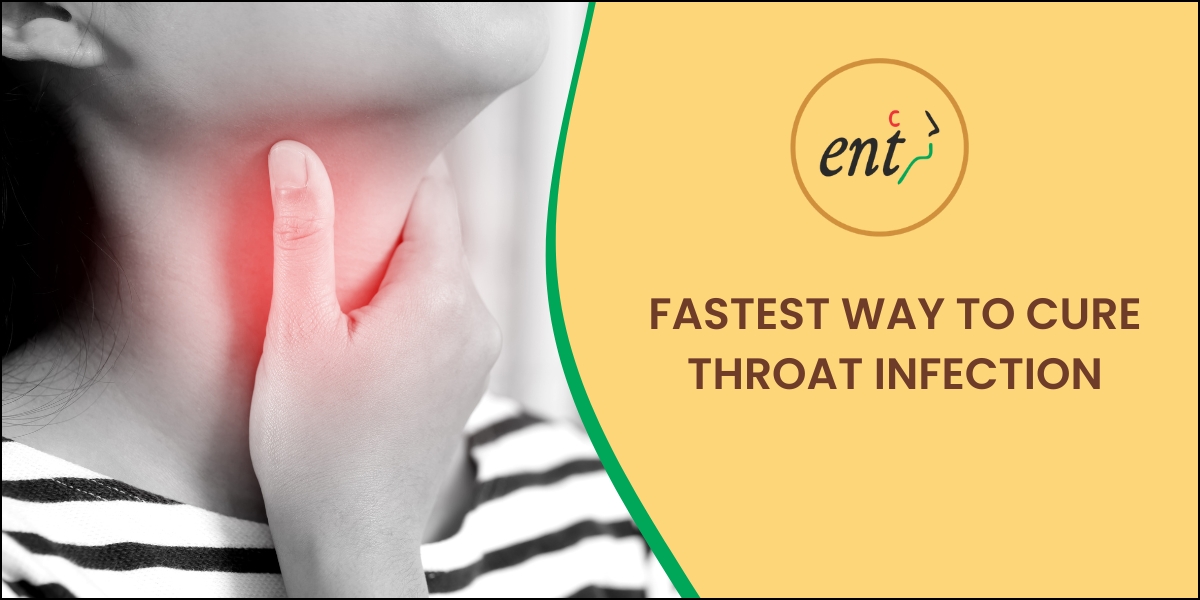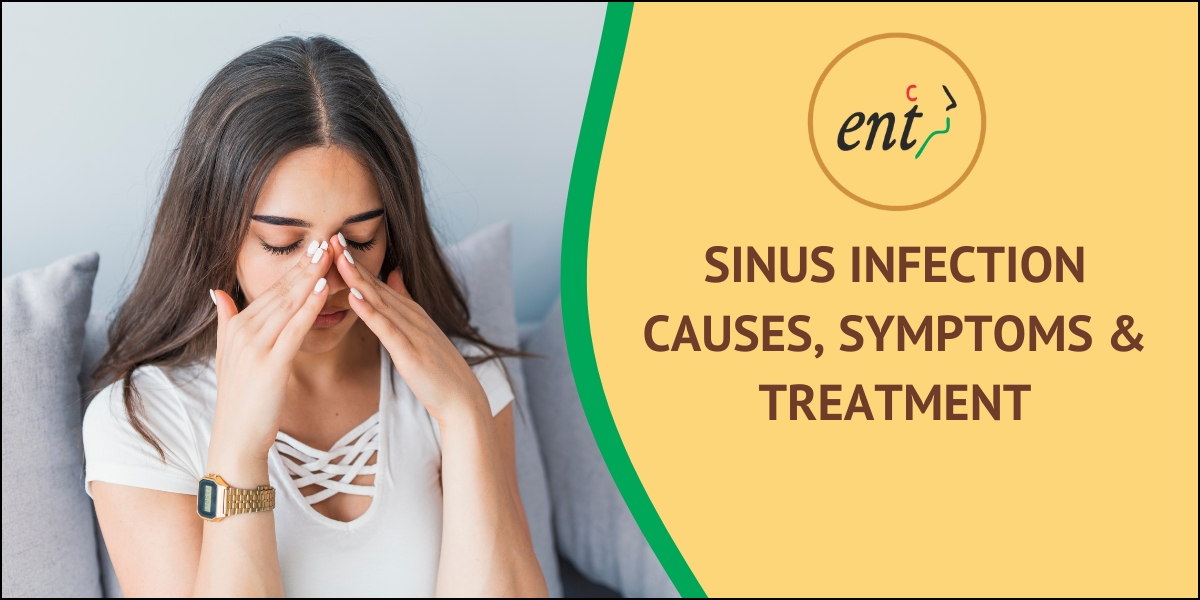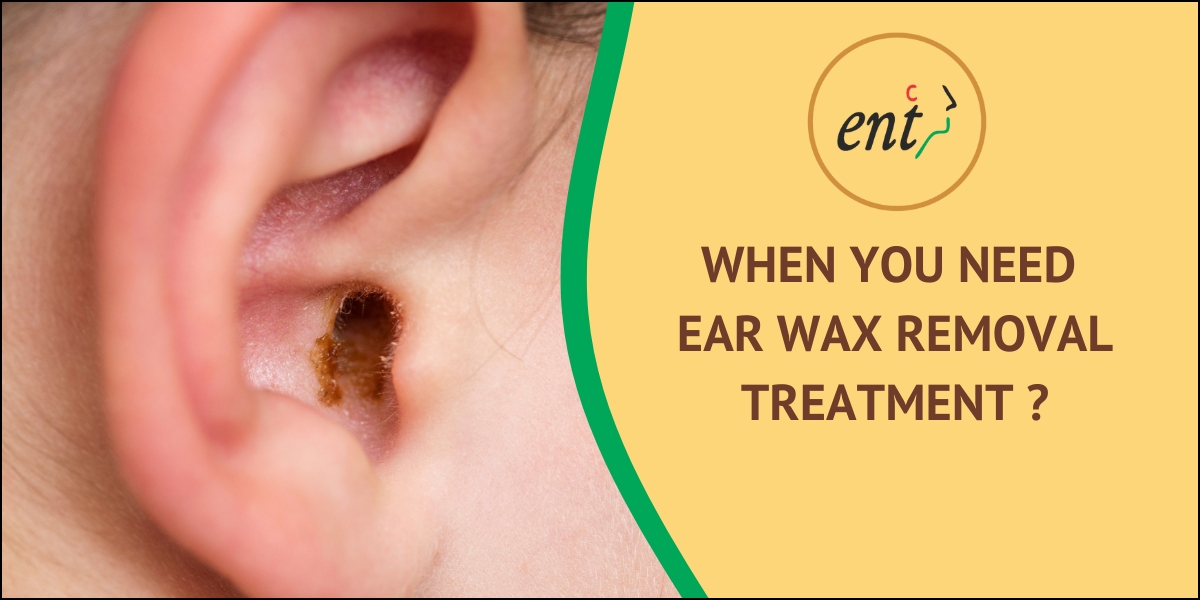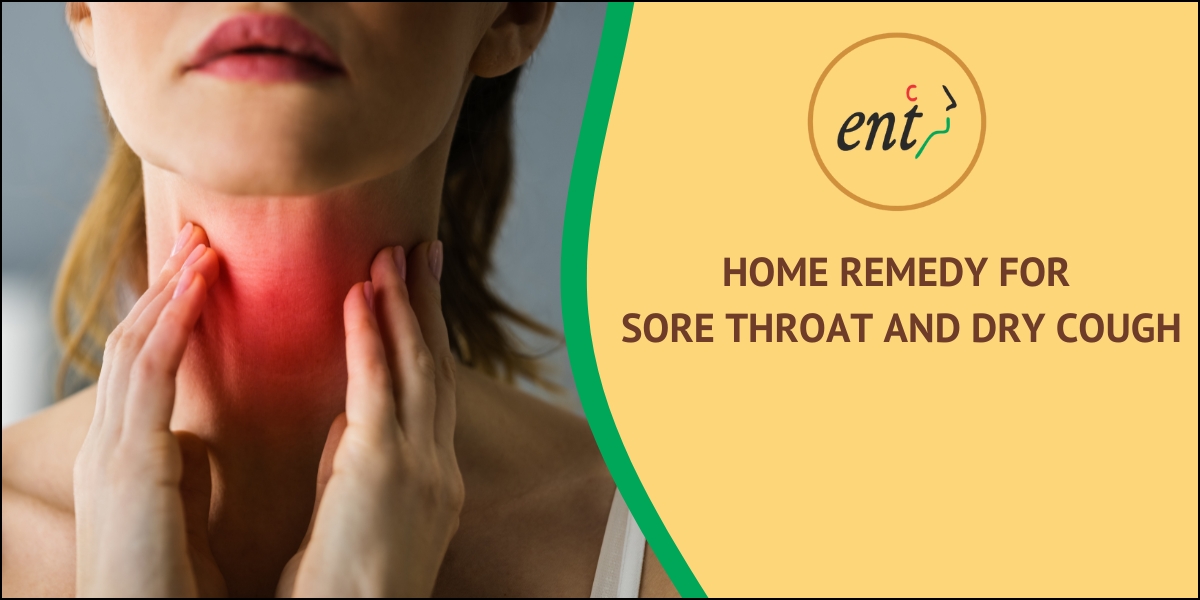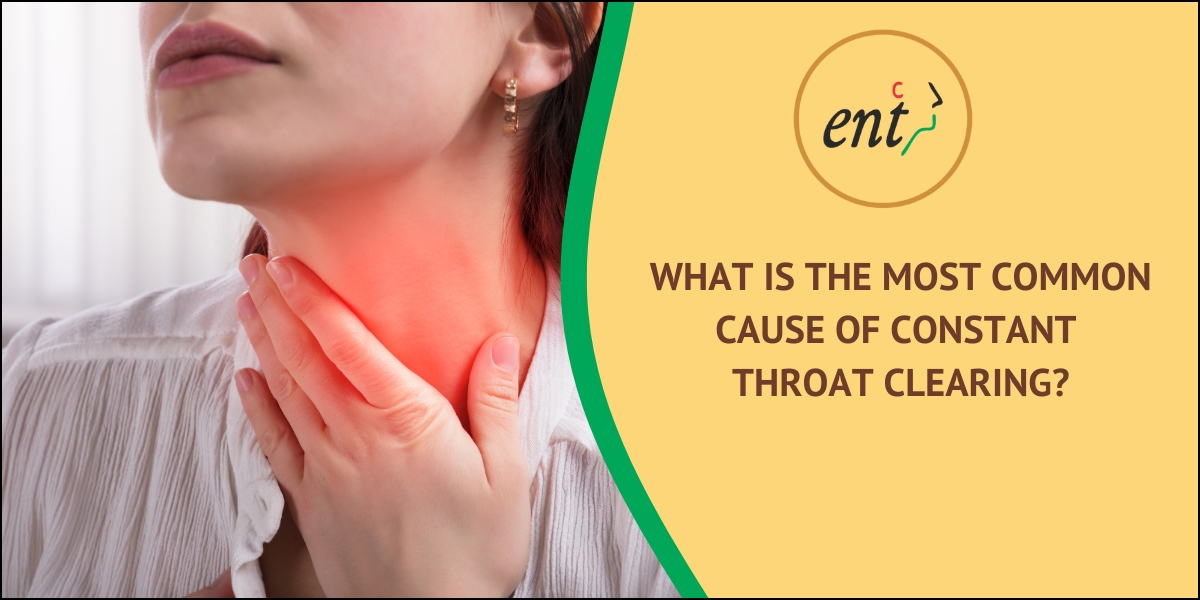Chronic Sinusitis: When Is It Time for Functional Endoscopic Sinus Surgery (FESS)? If you’re struggling with chronic sinusitis, you know it’s more than just a stubborn cold. It’s a relentless cycle of facial pressure, congestion, headaches, and fatigue that can diminish your quality of life. Despite trying countless medications, nasal sprays, and home remedies, the relief is often temporary. When conservative treatments fall short, many patients and their doctors begin to discuss a highly effective surgical option: Functional Endoscopic Sinus Surgery (FESS). But how do you know when it’s truly time to consider this step? Understanding Chronic Sinusitis Chronic sinusitis is defined as inflammation of the sinuses lasting for 12 weeks or longer, despite treatment attempts. Common symptoms include: Nasal obstruction or congestion Thick, discolored nasal drainage Facial pain, pressure, or fullness Reduced sense of smell (anosmia) Headaches and fatigue When medications like antibiotics, corticosteroids, and saline irrigations fail to provide sustained relief, the inflammation may be caused by a persistent physical blockage or anatomical issue that needs to be addressed. What is Functional Endoscopic Sinus Surgery (FESS)? FESS is a minimally invasive procedure that has revolutionized sinus surgery. Using a tiny, lighted endoscope, a skilled ENT surgeon enters the nasal passages to: Remove blockages (like polyps or swollen tissue) Widen natural drainage pathways of the sinuses Restore normal sinus function and ventilation The goal is not to “remove” sinuses but to open them, allowing them to drain properly and for medications to work more effectively. Recovery is typically faster and less painful than with older surgical techniques. Key Signs It Might Be Time for FESS Consider discussing FESS with your ENT specialist if you experience: Failed Maximum Medical Therapy: You have diligently followed a doctor-prescribed regimen of treatments (including nasal steroid sprays, courses of antibiotics or oral steroids, and saline irrigation) for several months with little to no improvement. Recurrent Acute Infections: You suffer from four or more significant sinus infections in a year, each requiring medication. Nasal Polyps: You have developed nasal polyps that obstruct sinus drainage and do not shrink sufficiently with steroid treatments. Anatomical Obstructions: A CT scan reveals structural issues like a severely deviated septum, enlarged turbinates, or narrow sinus openings that contribute to the problem. Complications or Severe Symptoms: You experience complications such as frequent asthma flares linked to sinusitis, or your symptoms are severely impacting your daily life, sleep, and work. The decision to proceed with FESS is made collaboratively between you and your ENT surgeon after a detailed evaluation, which almost always includes a CT scan of the sinuses to map the anatomy and inflammation. Expert Sinusitis Care in Pune: Dr. Rohit Prasad For those seeking lasting relief from chronic sinusitis in the Pune. Dr. Rohit Prasad offers expert diagnosis and advanced treatment options, including Functional Endoscopic Sinus Surgery (FESS). As a trusted ENT specialist, Dr. Rohit If you are searching for effective sinusitis treatment in Bhosari, PCMC, Pune, or a skilled ENT surgeon in Pune for nasal polyp removal or chronic sinus infection treatment, consulting with an experienced professional like Dr. Rohit Prasad is a critical step toward breathing freely again. Visit : Dr. Rohit Prasad | ENT Doctor in Bhosari, Moshi | ENT Specialist | Dr. Prasad ENT Hospital Address : first floor, Glorious Crown, Shop No 103, 104, 105, Spine Rd, Bhosari, Pimpri-Chinchwad, Pune Contact Number : 97025 74417 FAQs on Chronic Sinusitis & FESS 1. What is the recovery time for FESS surgery?Most patients return to light work within a week. Full recovery, with complete healing and final results, typically takes 4-6 weeks. Strenuous activity should be avoided for about two weeks. 2. Is FESS a major surgery?FESS is considered a minimally invasive, major outpatient surgery. While it is a significant procedure performed under anesthesia, it uses small endoscopes without external incisions, leading to less discomfort and quicker recovery than traditional surgery. 3. What are the risks of sinus surgery?Risks are low but can include bleeding, infection, changes in smell or taste, tear duct injury, or rare complications like cerebrospinal fluid leak. An experienced surgeon minimizes these risks. 4. How successful is FESS surgery?Success rates are high, with over 85-90% of patients experiencing significant, long-term improvement in their symptoms and quality of life. It is not a cure for sinusitis but a powerful tool to manage it effectively. 5. Can sinus polyps come back after FESS?Yes, polyps can recur, as FESS removes them but does not cure the underlying inflammatory tendency. However, surgery often makes future polyps easier to manage with medication and can prevent severe re-obstruction for many years. Recent Post Chronic Sinusitis: When Is It Time for Functional Endoscopic Sinus Surgery (FESS)? Tonsillitis vs Chronic Throat Infection: Signs, Treatment & Home Care What are the symptoms of throat issues? Seasonal Allergies and Sinus Health: Tips for Relief Common Ear Infections: Symptoms, Causes, and When to See a Doctor contact us Name(Required) First Phone(Required)Your Message(Required)CAPTCHA
Tonsillitis vs Chronic Throat Infection: Signs, Treatment & Home Care
Tonsillitis vs Chronic Throat Infection: Signs, Treatment & Home Care Throat infections are among the most common health complaints, but not all are the same. Distinguishing between acute conditions like tonsillitis and persistent issues like a chronic throat infection is crucial for effective treatment and long-term health. This guide breaks down the signs, treatments, and home care strategies for both, empowering you to take informed action for your throat health. Understanding Tonsillitis: The Acute Inflammation Tonsillitis refers to the inflammation of the tonsils, the two lymph nodes at the back of your throat. It is primarily an acute condition, often caused by viral or bacterial infections. Key Signs & Symptoms of Tonsillitis: Sudden Onset: Symptoms develop quickly. Severe Sore Throat: Pain that may worsen when swallowing. Red, Swollen Tonsils: Often with white or yellow patches. Fever and Chills. Swollen, Tender Lymph Nodes in the neck. Headache and Fatigue. Primary Causes: Viral Infections: (Most common) Such as the common cold or flu viruses. Bacterial Infections: Notably Group A Streptococcus (strep throat). Treatment Approaches: Viral Tonsillitis: Focus is on symptom relief. Treatment includes rest, fluids, and over-the-counter pain relievers (like ibuprofen or acetaminophen). Bacterial Tonsillitis: Requires a course of antibiotics prescribed by a doctor. Completing the full course is essential. Recurrent Cases: If tonsillitis episodes are frequent and debilitating, an ENT specialist may recommend a tonsillectomy (surgical removal of the tonsils). Understanding Chronic Throat Infection A chronic throat infection implies a persistent or recurrent infection and inflammation in the throat area that lasts for an extended period (often several weeks or more). It may not always involve the tonsils directly. Key Signs & Symptoms: Persistent Soreness: A constant or frequently recurring scratchy or painful throat. Chronic Irritation or Dryness. Difficulty Swallowing that lingers. Mild Hoarseness or voice changes. The sensation of a lump in the throat (globus pharyngeus). Not always accompanied by high fever. Common Causes & Related Conditions: Untreated or Resistant Infections: A prior infection that hasn’t fully cleared. Chronic Tonsillitis: Recurrent bouts of tonsillitis. Sinusitis & Post-Nasal Drip: Mucus drainage constantly irritates the throat. Acid Reflux (GERD/LPR): Stomach acid flowing back into the esophagus and throat is a major cause of chronic irritation. Environmental Irritants: Like smoke, pollution, or allergens. Fungal Infections: Such as oral thrush. Treatment Approaches: Treatment targets the root cause: Detailed Diagnosis: An ENT specialist may use a throat scope to examine the area closely. For GERD/LPR: Lifestyle changes and acid-reducing medications. For Chronic Sinusitis: Nasal sprays, irrigation, or antibiotics. For Persistent Bacterial Foci: A longer or different course of antibiotics may be needed. Tonsillectomy may be considered if chronically infected tonsils are the source. Home Care and Prevention Strategies Support your recovery and prevent future issues with these tips: Hydration is Key: Drink plenty of warm fluids (water, herbal teas, broths). This soothes the throat and thins mucus. Salt Water Gargle: Gargling with warm salt water (1/2 tsp salt in a glass of water) several times a day reduces swelling and discomfort. Humidify the Air: Use a cool-mist humidifier, especially in dry climates or during winter, to prevent throat dryness. Rest Your Voice: Avoid shouting, whispering, or prolonged talking. Soothing Remedies: Honey (for adults and children over 1), lozenges, and warm soups can provide comfort. Avoid Irritants: Steer clear of cigarette smoke, strong chemicals, and very spicy foods. Practice Good Hygiene: Wash hands frequently to prevent the spread of germs. When to See a Doctor Consult an ENT specialist if you experience: A sore throat lasting more than 48 hours or recurring frequently. Severe difficulty swallowing or breathing. High fever (over 101°F or 38.3°C). A rash or joint pain alongside the sore throat. A lump in the neck. Hoarseness lasting over two weeks. Professional diagnosis ensures you get the correct treatment, whether it’s a simple course of medicine or a more specialized plan for a chronic condition. Expert Throat Care at Dr. Prasad ENT Hospital Dr. Prasad ENT Hospital stands as a trusted center for comprehensive throat infection treatment. Dr. Rohit Prasad – ENT specialist, employs advanced diagnostic tools to accurately differentiate between acute tonsillitis, chronic throat infections, and other underlying conditions like acid reflux or allergies. The clinic offers a complete range of treatments, from medical management to minor surgical procedures like tonsillectomy. If you’re struggling with persistent throat issues, seeking expert consultation at Dr. Prasad ENT Hospital can provide the clarity and effective treatment plan you need for lasting relief and better throat health. Recent Post Tonsillitis vs Chronic Throat Infection: Signs, Treatment & Home Care What are the symptoms of throat issues? Seasonal Allergies and Sinus Health: Tips for Relief Common Ear Infections: Symptoms, Causes, and When to See a Doctor What is the Fastest Way to Cure a Throat Infection? contact us Name(Required) First Phone(Required)Your Message(Required)CAPTCHA
What are the symptoms of throat issues?
What are the symptoms of throat issues? We’ve all experienced it: that familiar scratch, pain, or tickle in the back of the throat. While a simple sore throat from a cold is common, it’s not the only story your throat can tell. Persistent or unusual symptoms can be your body’s way of signaling a deeper issue that needs attention. Understanding the different symptoms of throat problems is the first step toward getting the right care. Let’s break down the common signs and what they might mean. The Common Culprits: Frequent Throat Symptoms Most throat issues present with a recognizable set of symptoms. Paying close attention to their duration and severity is key. Pain or Soreness: This is the most universal symptom. It can range from a mild scratch to severe pain that makes swallowing difficult. While often caused by viral infections (like the common cold or flu), persistent pain on one side could indicate tonsillitis or an abscess. Hoarseness or Voice Changes: If your voice becomes raspy, weak, or sounds deeper than usual, you’re experiencing hoarseness. Acute hoarseness is typical with laryngitis from overuse or infection. However, if it lasts for more than two to three weeks, it’s essential to see a doctor, as it could point to vocal cord nodules, polyps, or other concerns. Difficulty Swallowing (Dysphagia): The sensation that food or liquid is getting stuck in your throat or chest should never be ignored. It can be caused by severe inflammation, a stricture (narrowing of the esophagus), or, in persistent cases, may require evaluation for more serious conditions. The Constant “Lump in the Throat” Feeling: Known medically as globus sensation, this is the feeling of a lump or mucus in your throat without a physical blockage. It’s often linked to acid reflux (GERD), where stomach acid irritates the throat, or to stress and anxiety. Persistent Cough or Throat Clearing: A cough that won’t go away or a constant need to clear your throat can be more than just a leftover cold symptom. It’s a classic sign of post-nasal drip from allergies or sinusitis, and also a primary indicator of silent reflux. Swollen Lymph Nodes or Tonsils: You may notice visible swelling in the front of your neck or see white patches on enlarged, red tonsils. Swollen lymph nodes indicate your body is fighting an infection, while swollen tonsils are a hallmark of tonsillitis. When Should You See a Doctor? It’s time to consult a throat specialist if you experience any of the following: Symptoms that persist for more than two weeks. Severe pain that prevents you from swallowing saliva or drinking. Difficulty breathing or a high fever accompanying the throat issue. A lump in the neck or coughing up blood. Unexplained weight loss along with throat symptoms. Listening to your body is crucial. Early diagnosis and treatment can prevent a minor issue from becoming a major one. FAQs Q: What are the first signs of a throat infection?A: The first signs are typically a scratchy or sore throat, pain when swallowing, and slightly swollen, tender glands in your neck. Q: How do I know if my sore throat is viral or bacterial?A: While only a test can confirm, viral sore throats often come with a runny nose and cough. Bacterial infections (like strep) frequently feature a sudden, severe sore throat without cold symptoms, plus a fever and white spots on the tonsils. Q: Can acid reflux cause throat problems?A: Yes. Acid reflux can cause a chronic sore throat, hoarseness, that “lump in the throat” feeling, and a persistent dry cough by irritating the vocal cords and throat lining. If you are experiencing persistent or worrying throat symptoms seeking expert advice is the best path to recovery. Dr. Rohit Prasad is a trusted throat specialist in Bhosari, Moshi, providing comprehensive care for a wide range of throat, voice, and swallowing disorders. Recent Post What are the symptoms of throat issues? Seasonal Allergies and Sinus Health: Tips for Relief Common Ear Infections: Symptoms, Causes, and When to See a Doctor What is the Fastest Way to Cure a Throat Infection? Sinus Infection – Causes, Symptoms & Treatment contact us Name(Required) First Phone(Required)Your Message(Required)CAPTCHA
Seasonal Allergies and Sinus Health: Tips for Relief
Seasonal Allergies and Sinus Health: Tips for Relief As the seasons change in Bhosari, so does the landscape, often blanketed with pollen from blooming trees and flowers. While beautiful, this natural process is a major trigger for millions dealing with seasonal allergies. For many, it’s more than just a few sneezes; it’s a constant battle with congestion, sinus pressure, and fatigue that can disrupt daily life. Understanding the link between seasonal allergies and your sinus health is the first step toward effective management. This guide, drawing on common concerns addressed by ENT specialists, will provide practical tips to help you breathe easier. The Allergy-Sinus Connection: Why You Feel Terrible When you inhale an allergen like pollen, mold, or dust, your immune system goes into overdrive, releasing histamine. This chemical causes inflammation and swelling in the nasal passages and sinus linings. This swelling traps mucus, preventing it from draining properly and creating the perfect environment for pressure, pain, and even infection—a condition known as sinusitis. Effective Tips for Allergy and Sinus Relief Managing your symptoms involves a two-pronged approach: reducing exposure to allergens and effectively treating the inflammation. Know Your Triggers and Check Pollen Counts: Pay attention to daily pollen forecasts. On days when counts are high for your specific trigger (tree, grass, or weed pollen), try to limit your time outdoors, especially during mid-morning and early evening when levels peak. Create an Allergy-Proof Home: Keep windows closed during high-pollen seasons and use air conditioning with a HEPA filter. After spending time outside, shower and change your clothes to rinse off any lingering allergens. Regularly vacuum and dust to minimize indoor triggers. Nasal Irrigation is Key: Using a saline nasal spray or a neti pot is one of the most effective ways to find relief from sinus pressure. It helps flush out mucus, allergens, and irritants from your nasal passages, reducing inflammation and improving drainage. Manage Inflammation with Medication: Over-the-counter antihistamines can block the effect of histamine, while nasal corticosteroid sprays reduce inflammation directly in the nasal passages. It’s best to start these medications before your allergy season begins for maximum effectiveness. Always consult a doctor before starting a new medication. Stay Hydrated: Drinking plenty of water, broth, or herbal tea helps to thin mucus, making it easier to drain from your sinuses and preventing blockages that lead to pain and pressure. When to See an ENT Specialist While these self-care strategies are highly effective, persistent symptoms may require professional care. If you experience severe facial pain, symptoms that last more than a week, or frequent sinus infections, it’s time to consult an expert. An ENT specialist in Bhosari, like Dr. Rohit Prasad, can provide a precise diagnosis, identify your specific allergens, and develop a comprehensive treatment plan. This may include prescription-strength medications or long-term solutions like immunotherapy (allergy shots or drops) to desensitize your immune system to triggers. Don’t let seasonal allergies control your life. By taking proactive steps and seeking expert care when needed, you can enjoy every season with comfort and clarity. Frequently Asked Questions (FAQs) 1. What is the fastest way to relieve sinus pressure from allergies?The fastest relief often comes from combining a saline nasal rinse to flush out allergens with a warm compress over the sinuses to ease pain. An over-the-counter decongestant can also provide quick, short-term relief. 2. How can I tell if it’s a sinus infection or just allergies?Allergies typically cause itchy eyes, sneezing, and clear, watery mucus. A sinus infection often involves thick, yellow or green mucus, facial pain/pressure, and sometimes a fever. 3. What are the best natural remedies for seasonal allergies?Saline nasal irrigation, using a HEPA air purifier, wearing a mask while gardening, and consuming local honey (for some) are popular natural approaches. Staying hydrated is also crucial. 4. When should I see a doctor for my allergies?See a doctor if over-the-counter remedies aren’t working, your symptoms are severe and disrupt your sleep or daily activities, or you suspect you have a sinus infection. 5. Can seasonal allergies cause dizziness?Yes. Congestion and sinus pressure can affect the Eustachian tubes in your ears, leading to a feeling of fullness, muffled hearing, and sometimes dizziness or vertigo. Recent Post Seasonal Allergies and Sinus Health: Tips for Relief Common Ear Infections: Symptoms, Causes, and When to See a Doctor What is the Fastest Way to Cure a Throat Infection? Sinus Infection – Causes, Symptoms & Treatment Feeling Blocked? When You Need Ear Wax Removal Treatment contact us Name(Required) First Phone(Required)Your Message(Required)CAPTCHA
Common Ear Infections: Symptoms, Causes, and When to See a Doctor
Common Ear Infections: Symptoms, Causes, and When to See a Doctor Ear pain is a common ailment that affects both children and adults, often striking with a sharp, persistent ache that can be hard to ignore. While frequently associated with childhood, ear infections don’t discriminate by age. Understanding the symptoms, causes, and knowing when to seek professional help is crucial for effective treatment and preventing complications. What Are the Different Types of Ear Infections? Ear infections are generally categorized by their location within the ear: Otitis Externa (Outer Ear Infection): Often called “swimmer’s ear,” this infection occurs in the ear canal, the tube connecting the outer ear to the eardrum. It’s frequently caused by water retention that creates a moist environment for bacteria to grow. Otitis Media (Middle Ear Infection): This is the most classic type, especially in children. It involves the space behind the eardrum where small vibrating bones are located. It often starts when a cold, allergy, or sinus infection causes fluid and mucus to become trapped in the middle ear, leading to bacterial or viral growth. Otitis Interna (Labyrinthitis): An inner ear infection that affects the labyrinth, which controls your balance and hearing. This type is less common but can be more severe. Recognizing the Symptoms: Is It an Ear Infection? The symptoms can vary depending on the type of infection and the age of the patient. Common Symptoms Across All Ages: Ear pain: A persistent ache, which can be sharp, dull, or throbbing. Feeling of fullness or pressure inside the ear. Muffled hearing or temporary hearing loss. Drainage of fluid from the ear (a sign a possible eardrum rupture). Itchiness inside the ear canal (common in outer ear infections). Symptoms in Children: Tugging or pulling at the ear. Fussiness and excessive crying. Difficulty sleeping. Fever, especially in younger children. Loss of appetite. Trouble responding to quiet sounds due to hearing difficulty. What Causes an Ear Infection? Ear infections are typically caused by bacteria or viruses. They often begin after another illness, like a cold or the flu, which causes congestion and swelling in the nasal passages and throat. Key Risk Factors: Age: Children between 6 months and 2 years are more susceptible due to the size and shape of their Eustachian tubes. Group Settings: Kids in daycare are exposed to more colds and subsequent ear infections. Seasonal Factors: Ear infections are more common during fall and winter. Poor Air Quality: Exposure to tobacco smoke or high levels of air pollution can increase risk. Altitude Changes and Climate changes can affect Eustachian tube function. Swimming: For outer ear infections, swimming in contaminated water is a common cause. When Should You See a Doctor? While some mild ear infections can clear on their own, it’s important to know the red flags. Seek medical attention if you or your child experience: Symptoms that last for more than 24-48 hours. Severe ear pain. A high fever (over 102.2°F or 39°C). Pus, fluid, or blood draining from the ear. Noticeable hearing loss. Symptoms in a child under 6 months of age (always see a doctor immediately). Symptoms that worsen or do not improve after taking antibiotics. Early diagnosis and treatment are essential. Untreated ear infections can lead to more serious complications, including hearing loss, speech or developmental delays in children, and the infection spreading to other parts of the head. Expert Care for Ear, Nose, and Throat Health If you suspect an ear infection, consulting with an experienced ENT specialist is the best course of action. They can provide an accurate diagnosis, recommend appropriate treatment—which may include pain management, antibiotics, or other therapies—and offer guidance on prevention. Consult Dr. Rohit Prasad is a trusted ENT specialist in Bhosari and PCMC, dedicated to diagnosing and treating a wide range of ear, nose, and throat conditions. Recent Post Common Ear Infections: Symptoms, Causes, and When to See a Doctor What is the Fastest Way to Cure a Throat Infection? Sinus Infection – Causes, Symptoms & Treatment Feeling Blocked? When You Need Ear Wax Removal Treatment Home remedy for sore throat and dry cough contact us Name(Required) First Phone(Required)Your Message(Required)CAPTCHA
What is the Fastest Way to Cure a Throat Infection?
What is the Fastest Way to Cure a Throat Infection? That familiar scratch, the painful swallow, the raw feeling that makes talking a chore—a throat infection can stop you in your tracks. Whether it’s a viral bug or a bacterial invader, your number one question is: “How can I get rid of this fast?” While there’s no magic “cure in an instant” button, the fastest way to heal involves a combination of professional medical advice and proven at-home remedies. Let’s break down your action plan for swift relief. Step 1: Identify the Enemy (It Matters!) The speed of your recovery heavily depends on the type of infection. You can’t treat them the same way. Viral Infections (e.g., Common Cold, Flu): These are the most common culprits. Antibiotics are ineffective against them. Your body needs to fight the virus on its own, a process that typically takes 3 to 7 days. The goal here is to manage symptoms and support your immune system. Bacterial Infections (e.g., Strep Throat): Caused by bacteria like Streptococcus, these often come with severe pain, fever, and white patches on the tonsils. They require antibiotics prescribed by a doctor. With the right medication, you can start feeling better within 24-48 hours. When to See a Doctor Immediately: Severe pain or difficulty swallowing/breathing A fever over 101°F (38.3°C) A sore throat that lasts more than 48 hours White patches or pus on the back of your throat A rash or swollen lymph nodes A doctor can perform a rapid test or throat culture to determine the cause and prescribe the correct treatment—this is the single most important step for a fast cure if bacteria are involved. Step 2: Your At-Home Relief Toolkit (For Any Infection) While you recover or while medication takes effect, these remedies can significantly speed up healing and provide comfort: The Power of Salt Water Gargle: This is not an old wives’ tale. Gargling with warm salt water (1/2 teaspoon of salt in a glass of warm water) several times a day helps reduce swelling, loosens mucus, and can flush out irritants and bacteria. Hydrate, Hydrate, Hydrate: Your throat is inflamed and needs moisture. sip on warm liquids like herbal teas (chamomile, licorice root), broth, or warm water with honey and lemon. Honey naturally soothes the throat and has antibacterial properties. Avoid caffeine and alcohol, which can dehydrate you. Embrace Steam: Inhaling steam from a hot shower or a bowl of hot water can moisten a dry, scratchy throat and loosen congestion, making it easier to breathe. Rest Your Voice and Body: Your body’s energy is focused on fighting an infection. Talking strains your vocal cords and throat muscles. Give them a break. Prioritizing sleep is one of the best ways to turbocharge your immune system. Over-the-Counter (OTC) Help: Pain relievers like ibuprofen or acetaminophen can effectively reduce throat pain and fever. Lozenges can also stimulate saliva production, keeping your throat moist. Step 3: What to Avoid Avoid Irritants: Stay away from smoke, strong chemical fumes, and extremely spicy or acidic foods that can further inflame your throat. Don’t Demand Antibiotics for Viral Infections: Using antibiotics when they aren’t needed contributes to antibiotic resistance, making them less effective when you truly need them. The Fastest Path: Professional Diagnosis + Targeted Care The absolute fastest way to cure a throat infection is to stop guessing and get a professional diagnosis. A correct identification of the cause—viral or bacterial—ensures you get the right treatment from the start, saving you days of unnecessary discomfort and preventing potential complications like tonsillitis or rheumatic fever. Expert Throat Infection Treatment in Bhosari If you’re in the Bhosari, Pune area, and suffering from a persistent or severe sore throat, seeking expert care is crucial. Dr. Rohit Prasad, a renowned ENT Specialist in Bhosari, provides comprehensive diagnosis and treatment for all types of throat infections. At Dr. Prasad ENT Hospital, patients receive personalized care. The clinic is equipped to perform accurate diagnostic tests to determine the root cause of your infection. Don’t let a throat infection slow you down. Get the right treatment for a fast and complete recovery. Recent Post What is the Fastest Way to Cure a Throat Infection? Sinus Infection – Causes, Symptoms & Treatment Feeling Blocked? When You Need Ear Wax Removal Treatment Home remedy for sore throat and dry cough What is the Most Common Cause of Constant Throat Clearing? contact us Name(Required) First Phone(Required)Your Message(Required)CAPTCHA
Sinus Infection – Causes, Symptoms & Treatment
Sinus Infection – Causes, Symptoms & Treatment A sinus infection, also known as sinusitis, is a common condition where the cavities around the nasal passages become inflamed. It can cause discomfort, pain, and difficulty in breathing. Understanding its causes, symptoms, and treatment can help manage the condition effectively. If you’re suffering from persistent sinus issues, consult Dr. Rohit Prasad, a leading ENT doctor in Bhosari & Moshi, Pune, for expert diagnosis and treatment. What is a Sinus Infection? Sinuses are air-filled spaces in the skull that help humidify air and produce mucus. When these sinuses get blocked and filled with fluid, bacteria, viruses, or fungi can grow, leading to an infection. Types of Sinus Infections Acute Sinusitis – Lasts up to 4 weeks, often due to a cold or allergies. Subacute Sinusitis – Persists for 4-12 weeks. Chronic Sinusitis – Lasts more than 12 weeks, often requiring medical intervention. Recurrent Sinusitis – Multiple episodes within a year. Causes of Sinus Infection Several factors can lead to sinusitis, including: Viral Infections (Common cold, flu) Bacterial Infections (Strep, Staph) Fungal Infections (Less common, but serious) Allergies (Pollen, dust, pet dander) Nasal Polyps (Non-cancerous growths) Deviated Septum (Misaligned nasal passage) Environmental Irritants (Smoke, pollution) Symptoms of Sinus Infection Common signs include: Nasal congestion Thick, discolored mucus Facial pain or pressure Headache Reduced sense of smell & taste Cough & sore throat Fatigue & fever If symptoms persist, visit Dr. Rohit Prasad, a trusted ENT specialist in Pune, for proper evaluation. Treatment for Sinus Infection 1. Home Remedies Steam Inhalation – Relieves congestion Saline Nasal Spray – Clears nasal passages Hydration – Thins mucus Warm Compress – Reduces facial pain 2. Medications Decongestants (For short-term relief) Antihistamines (For allergy-related sinusitis) Pain Relievers (Ibuprofen, Acetaminophen) Antibiotics (For bacterial infections) 3. Medical Treatments Nasal Corticosteroids (Reduces inflammation) Balloon Sinuplasty (Minimally invasive procedure) Endoscopic Sinus Surgery (For chronic cases) For advanced treatment, consult Dr. Rohit Prasad, an experienced sinus specialist in Bhosari & Moshi, Pune. When to See a Doctor? Seek medical help if you experience:– Severe headache or high fever– Symptoms lasting more than 10 days– Vision problems or swelling around eyes– Confusion or neck stiffness Prevention Tips Avoid smoking & polluted areas Manage allergies effectively Use a humidifier in dry climates Wash hands frequently to prevent infections Sinus infections can be bothersome, but with proper care, they can be managed effectively. If you’re looking for the best ENT doctor in Pune, Dr. Rohit Prasad provides expert care for sinusitis, allergies, and nasal disorders in Bhosari & Moshi, Pune. Recent Post Sinus Infection – Causes, Symptoms & Treatment Home remedy for sore throat and dry cough What is the Most Common Cause of Constant Throat Clearing? Snoring and Sleep Apnea: ENT Solutions When to See an ENT Specialist for Persistent Cough contact us Name(Required) First Phone(Required)Your Message(Required)CAPTCHA
Feeling Blocked? When You Need Ear Wax Removal Treatment
Feeling Blocked? When You Need Ear Wax Removal Treatment Do you often experience a blocked sensation in your ears? Are you struggling with hearing difficulties or discomfort? Ear wax buildup could be the culprit! While ear wax (cerumen) is natural and protects your ears, excessive accumulation can lead to problems. We’ll discuss when you might need ear wax removal treatment What Causes Excessive Ear Wax Buildup? Ear wax is produced by glands in the ear canal to trap dust and prevent infections. However, factors like: Using cotton swabs (pushing wax deeper) Wearing hearing aids or earplugs frequently Narrow or hairy ear canals Overproduction of wax …can lead to blockages, causing symptoms like: Signs You Need Ear Wax Removal Treatment Muffled Hearing – If sounds seem dull or distant, wax buildup may be obstructing your ear canal. Earache or Discomfort – Pressure from hardened wax can cause pain. Tinnitus (Ringing in Ears) – Blockages may lead to unusual noises. Itchiness or Discharge – Excess wax can cause irritation or infection. Dizziness or Coughing – Severe blockages may affect balance or trigger reflexes. If you experience these symptoms, avoid DIY methods like ear candling or sharp objects, as they can damage your eardrum. Instead, consult an ENT specialist for safe removal. Professional Ear Wax Removal at Dr. Prasad ENT Hospital At Dr. Prasad ENT Hospital, Dr. Rohit Prasad provides safe and painless ear wax removal in Bhosari, Pune, using advanced techniques such as: Microsuction (gentle suction under microscope guidance) Irrigation (ear syringing) (flushing out wax with warm water) Manual Removal (using specialized tools) These methods ensure quick relief without complications, restoring your hearing and comfort. When to See an ENT Doctor? Seek professional help if:– Home remedies (like olive oil drops) don’t work.– You experience severe pain or hearing loss.– There’s bleeding or discharge from the ear. Preventing Ear Wax Blockages Avoid cotton swabs – Clean only the outer ear with a cloth. Use ear drops – If prone to wax buildup, ask your ENT for recommendations. Regular check-ups – Especially if you use hearing aids. Ignoring ear wax buildup can lead to infections or hearing issues. If you’re in Pune (Bhosari & Moshi) and need professional ear wax removal, visit Dr. Prasad ENT Hospital for expert care. Recent Post Feeling Blocked? When You Need Ear Wax Removal Treatment Sinus Infection – Causes, Symptoms & Treatment Home remedy for sore throat and dry cough What is the Most Common Cause of Constant Throat Clearing? Snoring and Sleep Apnea: ENT Solutions contact us Name(Required) First Phone(Required)Your Message(Required)CAPTCHA
Home remedy for sore throat and dry cough
Home remedy for sore throat and dry cough A sore throat and dry cough can be incredibly uncomfortable, often caused by infections, allergies, or environmental irritants. While medical treatment may be necessary in severe cases, several home remedies for sore throat and dry cough can provide quick relief. Here are some natural solutions to soothe your symptoms. 1. Saltwater Gargle One of the oldest and most effective home remedies for throat irritation is gargling with warm salt water. It helps reduce inflammation and kills bacteria in the throat. How to use: Mix ½ teaspoon of salt in a glass of warm water. Gargle for 15-30 seconds, then spit it out. Repeat 2-3 times daily. 2. Honey and Warm Water Honey has natural antibacterial and soothing properties, making it an excellent home remedy for dry cough. How to use: Mix 1-2 teaspoons of honey in warm water or herbal tea. Drink it 2-3 times a day for relief. (Note: Avoid giving honey to children under 1 year old.) 3. Ginger Tea Ginger has anti-inflammatory effects that can help ease throat pain and suppress coughing. How to use: Boil fresh ginger slices in water for 5-10 minutes. Strain, add honey, and drink warm. 4. Turmeric Milk (Golden Milk) Turmeric contains curcumin, which has powerful anti-inflammatory and antimicrobial benefits. How to use: Mix ½ teaspoon of turmeric powder in warm milk. Drink before bedtime for relief from nighttime dry cough. 5. Steam Inhalation Dry air can worsen throat irritation. Steam inhalation helps moisturize the throat and clear congestion. How to use: Boil water and pour it into a bowl. Lean over the bowl, cover your head with a towel, and inhale the steam for 5-10 minutes. 6. Licorice Root Tea Licorice root is known for its soothing effects on the throat and can help reduce coughing. How to use: Steep licorice root in hot water for 5-10 minutes. Strain and drink warm. 7. Stay Hydrated Drinking plenty of fluids keeps the throat moist and helps flush out toxins. Opt for: Warm water Herbal teas Broth-based soups When to See a Doctor? If your sore throat and dry cough persist for more than a week or are accompanied by: High fever Difficulty breathing Swollen lymph nodes Dr. Rohit Prasad – Throat Specialist in Bhosari For persistent sore throat, chronic cough, or throat infections, visit Dr. Rohit Prasad, a renowned ENT specialist in Bhosari, for expert diagnosis and treatment. Recent Post Home remedy for sore throat and dry cough What is the Most Common Cause of Constant Throat Clearing? Snoring and Sleep Apnea: ENT Solutions When to See an ENT Specialist for Persistent Cough Hearing Loss in Adults: Early Signs and Next Steps contact us Name(Required) First Phone(Required)Your Message(Required)CAPTCHA
What is the Most Common Cause of Constant Throat Clearing?
What is the Most Common Cause of Constant Throat Clearing? Constant throat clearing can be an annoying and persistent issue, often signaling an underlying condition. If you frequently feel the need to clear your throat, it’s essential to understand the possible causes and seek appropriate treatment. Common Causes of Constant Throat Clearing 1. Postnasal Drip (PND) One of the most frequent causes of throat clearing is postnasal drip, where excess mucus from the nose or sinuses drips down the back of the throat. This can be due to: Allergies (hay fever) Sinus infections Cold or flu Environmental irritants (dust, smoke, pollution) 2. Acid Reflux (GERD/LPR) Gastroesophageal reflux disease (GERD) or laryngopharyngeal reflux (LPR) occurs when stomach acid flows back into the throat, irritating the vocal cords and causing: Chronic throat clearing Hoarseness Burning sensation Persistent cough 3. Allergies & Irritants Exposure to allergens like pollen, dust, pet dander, or chemical fumes can trigger throat irritation, leading to frequent throat clearing. 4. Chronic Sinusitis Long-term sinus inflammation increases mucus production, contributing to postnasal drip and throat discomfort. 5. Vocal Strain & Throat Irritation Overusing your voice (shouting, excessive talking) or breathing through the mouth (due to nasal congestion) can dry out the throat, making you clear it repeatedly. 6. Smoking & Air Pollution Tobacco smoke and air pollutants can irritate the throat lining, leading to chronic throat clearing. 7. Psychological Factors (Habitual Throat Clearing) Sometimes, throat clearing becomes a habit or nervous tic, even without an underlying medical issue. When to See a Doctor? If throat clearing persists for weeks or is accompanied by: Difficulty swallowing Hoarse voice lasting over 2 weeks Unexplained weight loss Blood in saliva Treatment & Prevention Tips – Stay hydrated – Drink plenty of water to thin mucus.– Use a humidifier – Prevents throat dryness.– Avoid irritants – Quit smoking, reduce exposure to allergens.– Manage acid reflux – Elevate your head while sleeping, avoid spicy/fatty foods.– Nasal saline rinses – Help reduce postnasal drip.–Antihistamines/decongestants – Useful for allergy-related throat clearing. Expert ENT Care in Bhosari If constant throat clearing is affecting your daily life, consult Dr. Rohit Prasad, a leading ENT Specialist in Bhosari, for accurate diagnosis and personalized treatment. Recent Post What is the Most Common Cause of Constant Throat Clearing? Snoring and Sleep Apnea: ENT Solutions When to See an ENT Specialist for Persistent Cough Hearing Loss in Adults: Early Signs and Next Steps Sinus Infections: Causes, Symptoms, and Effective Treatments contact us Name(Required) First Phone(Required)Your Message(Required)CAPTCHA

